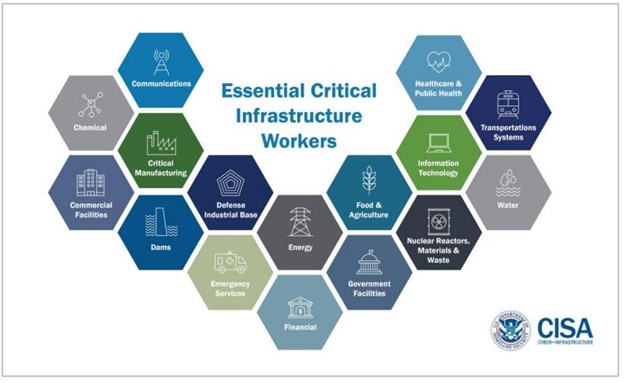Current Guidance on Whether Construction Services Are "Essential" or "Life-Sustaining" Businesses Under Governmental Business Suspensions
State governments are issuing orders suspending the full or partial operations of "non-essential" or "non-life-sustaining" businesses. At the time of writing this post, these states include Nevada, Pennsylvania (Order of PA Secretary of Health), New York (50% no later than 8pm today - March 20th). Some cities, such as Los Angeles are issuing similar orders. Other states and local municipalities are considering such measures and it appears inevitable that more will come today and through next few days.
To what extent will construction companies qualify to continue operations as "essential" or "life-sustaining" businesses? What is the current guidance?
New York's guidance provides for construction "skilled trades such as electricians, plumbers" and "other related construction firms and professionals for essential infrastructure or for emergency repair and safety purposes." "Essential infrastructure" includes:
- utilities including power generation, fuel supply and transmission
- public water and wastewater
- telecommunications and data centers
- airports/airlines
- transportation infrastructure such as bus, rail, or for-hire vehicles, garages
Nevada's guidance included similar industries such as utilities, airports, and transportation.
Pennsylvania developed a more detailed list organized by industry, sector, sub-sector, and industry group identifying whether an business may continue physical operations. Pennsylvania's list looks to be more restrictive for construction operations. The list can be found here: 20200319-Life-Sustaining-Business (PDF 3.19.2020). At the time of writing this post, none of the construction services were deemed life-sustaining to continue physical operations. This includes construction of buildings, heavy and civil engineering construction (including utility and road/bridge construction), and specialty trade contractors.
On March 19, 2020, the U.S. Department of Homeland Security Cybersecurity and Infrastructure Security Agency (CISA) published a memorandum on identification of essential critical workers during the COVID-19 response. The Memo states it purpose is to:
CISA developed an initial list of “Essential Critical Infrastructure Workers” to help State and local officials as they work to protect their communities, while ensuring continuity of functions critical to public health and safety, as well as economic and national security. The list can also inform critical infrastructure community decision-making to determine the sectors, sub-sectors, segments, or critical functions that should continue normal operations, appropriately modified to account for Centers for Disease Control (CDC) workforce and customer protection guidance.
The Memo describes the list it provides is advisory in nature only. Further,
The attached list identifies workers who conduct a range of operations and services that are essential to continued critical infrastructure viability, including staffing operations centers, maintaining and repairing critical infrastructure, operating call centers, working construction, and performing management functions, among others. The industries they support represent, but are not necessarily limited to, medical and healthcare, telecommunications, information technology systems, defense, food and agriculture, transportation and logistics, energy, water and wastewater, law enforcement, and public works.
Below is an image of the list of workers by industry:

Much of the description in the memorandum discusses the maintenance and repair of the essential business sectors.
Like the suspension of construction projects in Boston and Cambridge, there are application procedures for businesses to request to be designated an essential or life-sustaining business.
